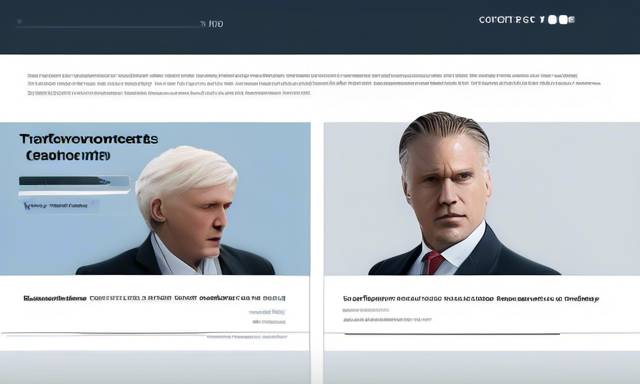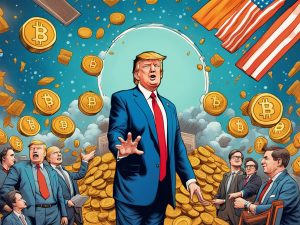Exploring New Event Contracts in the Political Arena: An Overview 😊
This year, political enthusiasts and market participants have been introduced to innovative event contracts, allowing them to express their opinions on various election outcomes. Despite the excitement surrounding these new markets, they still face the challenge of gaining traction among major financial players and navigating the complexities of regulation before they can reach their full potential as investment tools.
Recent Launches 📈
This month, Kalshi and Interactive Brokers debuted presidential election contracts on their emerging platforms. This follows a significant legal victory for Kalshi against the Commodity Futures Trading Commission (CFTC), which is currently appealing to halt these markets. As the legal proceedings unfold, the presidential election represents a pivotal moment for these platforms to showcase their value to investors.
Previously, these platforms primarily featured lightly traded contracts centered around various events, such as economic announcements. Steven Sanders, the executive vice president of marketing and product development at Interactive Brokers, mentioned that these prior contracts served as a testing phase leading up to the election-specific contracts. With less than a month remaining before the general election on November 5, the interest has surged since launching these election contracts.
How Event Contracts Operate 🔍
The election contracts provided by Kalshi and Interactive Brokers mimic the functionality of futures and other derivative products, with a specific expiration date for each contract. These contracts are binary—each pays out $1 if the predicted event occurs, and $0 if it does not. Unlike the newer platforms, established options like PredictIt and the Iowa Electronic Markets operate under different CFTC regulations, which necessitate that positions remain below $1,000.
- Polymarket presents another alternative—although it is blockchain-based and not available for U.S. customers.
The position limits imposed by the older prediction markets prevent any single trader from having undue influence, thus reducing risks for participants. However, these limits can hinder the effectiveness of the market for hedging purposes, as noted by John Phillips, co-founder of PredictIt. His team is currently working to develop a platform that aligns more closely with Kalshi and Interactive Brokers.
Diverse Political Predictions 📊
Beyond the presidential race, Kalshi provides contracts for other key political events, such as major Senate races and the overall control of Congress. Kalshi’s CEO, Tarek Mansour, emphasized that numerous factors compound the importance of the presidential election. He stated that not only the presidency is significant but also the composition of the Senate, House, and influences from individual states.
Applications for Financial Hedging 🌐
One practical application of these election contracts is their potential utility in hedging against various outcomes, presenting a more straightforward alternative than taking short positions on broader indexes like the S&P 500. According to Bob Elliott, CEO and CIO at Unlimited Funds, navigating political events can be particularly challenging for fund managers, complicating their ability to maintain balanced risk management strategies. He also highlighted that these markets could have proved beneficial during the 2016 Brexit vote.
Despite these possibilities, the current size and regulatory uncertainties surrounding the contracts have deterred many investors, with Kalshi’s leading presidential election market reporting less than $8 million in total trading volume since the early stages of its introduction this month. The Interactive Brokers platform encounters similar trading volumes, while Polymarket has exceeded $1.9 billion across its most popular contracts.
Challenges Ahead 🚧
The primary obstacles to the integration of these event contracts into investment portfolios include volume, liquidity, and scrutiny from regulators. Matt Thompson from Little Harbor Advisors pointed out that the unpredictable nature of market reactions to election results or data releases may compromise their efficacy as hedging tools. If successfully established, these prediction markets could also prove insightful for non-traders seeking a deeper understanding of electoral dynamics.
Academic insights from Koleman Strumpf, a political economy expert, indicate that prediction markets often outperform traditional polling methods. He noted exceptions, such as the 2016 election, where predictions diverged significantly from actual outcomes.
Concerns and Criticisms ⚠️
Critics of election-based markets have voiced concerns about the potential for manipulation by large traders, suggesting a risk of influencing public perception on election day. Cantrell Dumas of Better Markets has expressed worries that financial backing might create the impression of one candidate outperforming another, impacting voter turnout and choices. Conversely, Phillips from PredictIt believes these markets could mitigate misinformation by encouraging more informed trading behavior.
Strumpf, however, maintains that he has not witnessed compelling evidence of manipulation within the major prediction markets. He remarked that differing platform regulations complicate arbitrage opportunities, potentially rendering markets less efficient.
Looking Ahead 🗓️
An appellate court has fast-tracked the CFTC’s legal appeal, yet the resolution of this conflict is not expected before election day on November 5. The CFTC has expressed reservations about assuming an election-monitoring role and has taken issue with the extensive variety of contracts proposed by Kalshi.
Moving forward, the growth dynamics of these markets leading up to election day—and their capacity to adapt to increased activity—will greatly influence their longevity and relevance in the financial market landscape. Kalshi’s CEO noted that market makers like Susquehanna could theoretically execute trades up to $100 million with minimal impact on pricing, although no such transaction has occurred to date. Discussion with institutional entities, including hedge funds and family offices, is ongoing, but given the current liquidity levels, substantial institutional interest remains hesitant. Elliott advised that a significant distance remains before these instruments will appeal to larger institutional investors in search of liquidity.





 By
By
 By
By
 By
By

 By
By